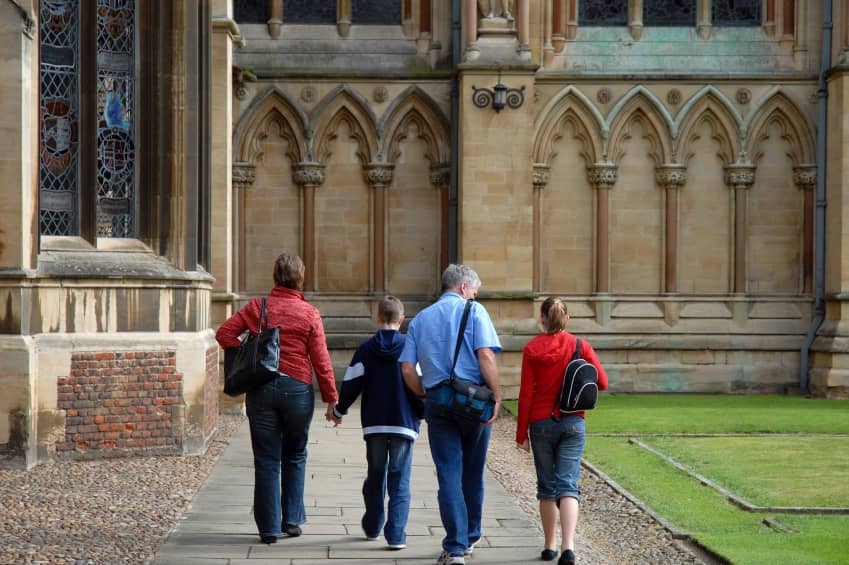Road Rules: Get the Most Out of a College Visit
No amount of research can replace the experience of visiting a campus firsthand. By going to a school itself, you can talk directly to current students, take a close look at the residence halls, and make meaningful contact with the admissions office.
Despite the tremendous value that can come from a college visit, some students and parents do not come aptly prepared. In many cases, people don’t take the time to plan properly, simply showing up or driving by. Without some foresight, you might risk getting a hasty—and often incorrect—impression of the school.
Get the most out of your college visit! Here are a few tips that will help you:
Pre-Planning
Call to schedule your college visit at least two weeks ahead of time
Many people do not pre-plan their college visit, which can end up leading to an unproductive, spoiled experience. If you call ahead of time, the admissions office will be able to accommodate you and ensure that you get what you need out of your visit.
Make sure to get proper directions to the admissions office
In order to make a good first impression, make sure you know where you’re going so that you can arrive on time. Don’t only trust your GPS! If you have any questions, ask for help from someone on campus or call the admissions office to help clarify your directions.
If there is anything specific you wish to see, ask ahead of time
Depending upon the time of year, the staff involved in your college visit may not be able to accommodate you with everything you wish to see. For example, it may not be possible to audit a class or stay overnight during a visit in the summer months. Regardless, it can never to ask if there is ever something of specific interest to you.
Be flexible
It may not be possible for the school you’re visiting to schedule everything you would like to see, especially during the summer. Be willing to try something else, and always remember that you want to present yourself positively; you still might want to apply to this school later.
If you need to cancel or reschedule, call ASAP
It goes without saying that you can’t ever predict emergencies or unforeseen circumstances, but it’s nevertheless a common courtesy to contact the admissions office to let them know you can’t come. It’s important to respect the admissions staff’s time, so try not to inconvenience them by failing to show up without any warning.
During the Visit
Ask questions
Take an active role. The college visit is a golden opportunity for you to ask questions about what really matters to you.
Try to do some extra things on your own
Eat in the cafeteria, talk to students, see where people hang out, and tour the neighborhood around the school. If you take a close look on your own, you can get a more complete picture of the school, not just what the admissions office wants to highlight.
Don’t discount the school because of bad weather or other uncontrollable circumstances
Some students are quick to cross a school off their list simply because it rained or because they visited during a school break when there weren’t many activities going on. Don’t fall into this trap! There are going to be good days and bad days no matter where you go, so try to look past the the inconstant factors and instead focus on the school for what it is and what it can be for you.
Post-Visit
Always write a thank-you note
In order to make a great and lasting impression, write a thank-you note to those you met on campus. This makes it more likely to be remembered when it comes time to review your application.
Make sure you have contact information for any future questions or concerns
Keep business cards and pamphlets in some organized folder so that you can refer back to them if necessary.
Make sure to remain in contact with the school
Some schools keep a record of contact information and sometimes use a prospective student’s correspondence as a measurement of how interested they are in being admitted.
Talk with your high school counselor about the visit
It’s a great idea to bounce your ideas off of parents, relatives, and friends when you weigh the options and experiences from your college visits. You should also make sure, however, to discuss your visit with your counselor, as they can provide a neutral and informative perspective on your experiences.



